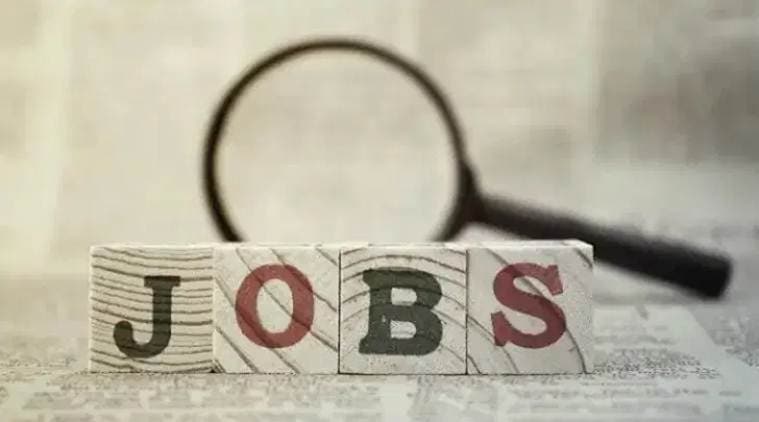- India
- International
Covid-19 crisis: 6 pragmatic money tips if you have lost your job recently
If your income has seen a decrease during the ongoing phase, you need calm nerves to take stock of your finances and make some critical readjustments if required. I’ve discussed a few tips which you’re likely to find very useful if you’ve lost your job in the last few months.
 Such temporary recruitments are being conducted across the state in light of the rising number of Covid cases.
Such temporary recruitments are being conducted across the state in light of the rising number of Covid cases.
The Covid-19 crisis has come unannounced and disrupted many of our financial plans like nothing we’ve experienced before. The economic fallout of the pandemic has led to widespread job losses and paycuts, and countless might be finding it challenging to get a new job with better or even similar perks during this lockdown. However, a crisis like the one we currently find ourselves in requires calm nerves and not panic-stricken decisions. If your income has seen a decrease during the ongoing phase, you need calm nerves to take stock of your finances and make some critical readjustments if required. I’ve discussed a few tips which you’re likely to find very useful if you’ve lost your job in the last few months.
1. Increase the size of your emergency fund
If you had in place an emergency fund worth at least 3 months of your income before the pandemic, use your severance package or the full and final settlement to increase its size to 6 months or even 12 months if possible. Your emergency fund will be your central cash reserve until you get another job. You can also choose to park a portion of your emergency fund in an FD for some capital appreciation and liquidate it midway if required after losing just 1% interest income.
2. Go on a strict financial diet
With clogged income channels, you need to track every rupee that leaves your account and look for ways to cut corners wherever possible. Your spending patterns need to undergo a drastic change during such a situation. You need to exercise strict cost-cutting measures and minimise non-essential expenditures to be able to free up more money for critical financial commitments like rent, food, utilities, etc. The lockdown phase should be of some help in this as you no longer will have to spend on things like daily commutes.
3. Ensure your critical insurance plans do not lapse due to non-payment of premiums
Another critical financial commitment, especially during this pandemic, is your insurance plan. Timely payment of your insurance premiums also needs to be a top priority. Your life insurance plan will help secure your dependent family members’ financial interests if something untoward were to happen to you, and your medical insurance plan will safeguard your precious savings if any of the insureds require hospitalisation. If you were solely dependent on your employer-provided group health insurance plan when you were employed with them, see if you could continue the same plan after paying the premiums even after losing your job. That might be a cheaper alternative to buying a new plan and you won’t have to go through fresh waiting period deadlines for pre-existing conditions.
4. Borrow cautiously

Now if you are going through a severe cash crunch and your cost-cutting measures are proving to be of limited help, you might be eager to take a loan at this stage. However, you must be very cautious while taking a loan as your finances will deteriorate further if you can’t make timely repayments. If you were planning to make a partial withdrawal from your Provident Fund account, you might feel a bit disheartened to know the deadline to avail of this facility has now ended unless there’s an extension. But there are still a few other ways to raise cash without having to take a new loan. These could be liquidating a non-essential investment (i.e. an investment which is not linked to your most important financial goals), pausing your SIPs, or selling a few unnecessary items gathering dust at your home.
If none of these options seem to address your requirement, you can look for collateralised loans which are usually cheaper than their unsecured counterparts. These could be a gold loan, a loan against your endowment plan or ULIP investment, a loan against securities like eligible mutual fund investments or shares, etc. If not, you can go for unsecured financing facilities like a personal loan or a credit card-linked pre-approved loan. But whichever option you choose, do ensure you have a plan in place to repay the loan on time in full and compare your options within the same loan category for the best repayment terms like lower interest rates, processing fees, and foreclosure charges before finalising your decision.
5. Take moratorium support only if you have a clear ‘bounce-back’ plan
If you’ve been servicing a home loan, you might be tempted to opt for the moratorium facility for some temporary relief. However, since interest charges will continue to accrue during the moratorium period, opting for it could lead to tens of EMIs being added to your loan, especially if you’ve recently started repaying your loan. So, ensure you have a plan in place to be able to repay this accrued interest alongside your regular EMIs soon after the moratorium ends by making adequate prepayments. You could pre-pay 120% of the deferred payments within a year of the end of the moratorium, and this should put you back on the original repayment plan without the burden of the additional interest. This is what I call a “bounce back plan”. Unless you have one, taking the moratorium could considerably increase your loan burden. Also, try not to avail of this facility on your credit card dues as those come with interest charges in the range of 3-4% per month.
6. Look for ways to open additional income channels unless you get another job
Losing a job is an unpleasant feeling; however, you need to move on as well. To begin with, ensure you’ve updated your resume and uploaded it on relevant job portals and have started reaching out to your contacts who can help you land another job. You can also use the time in between to upskill yourself, preferably using an affordable if not free online course or certification programme, for better job prospects. Meanwhile, also try to look for ways to monetise your skills and hobbies. These could be taking up freelancing projects or online tutoring among many other things. Any additional income at this stage could be of great help. More importantly, it would boost your confidence and help you get over the shock of an unanticipated job loss.
Difficult times demand tough decisions. It is how pragmatically we deal with them that decides how quickly we can emerge out of it. A little planning would help us greatly to come out of this crisis with minimum damage. I wish you all the very best!
The writer is CEO, BankBazaar.com
Apr 25: Latest News
- 01
- 02
- 03
- 04
- 05








































